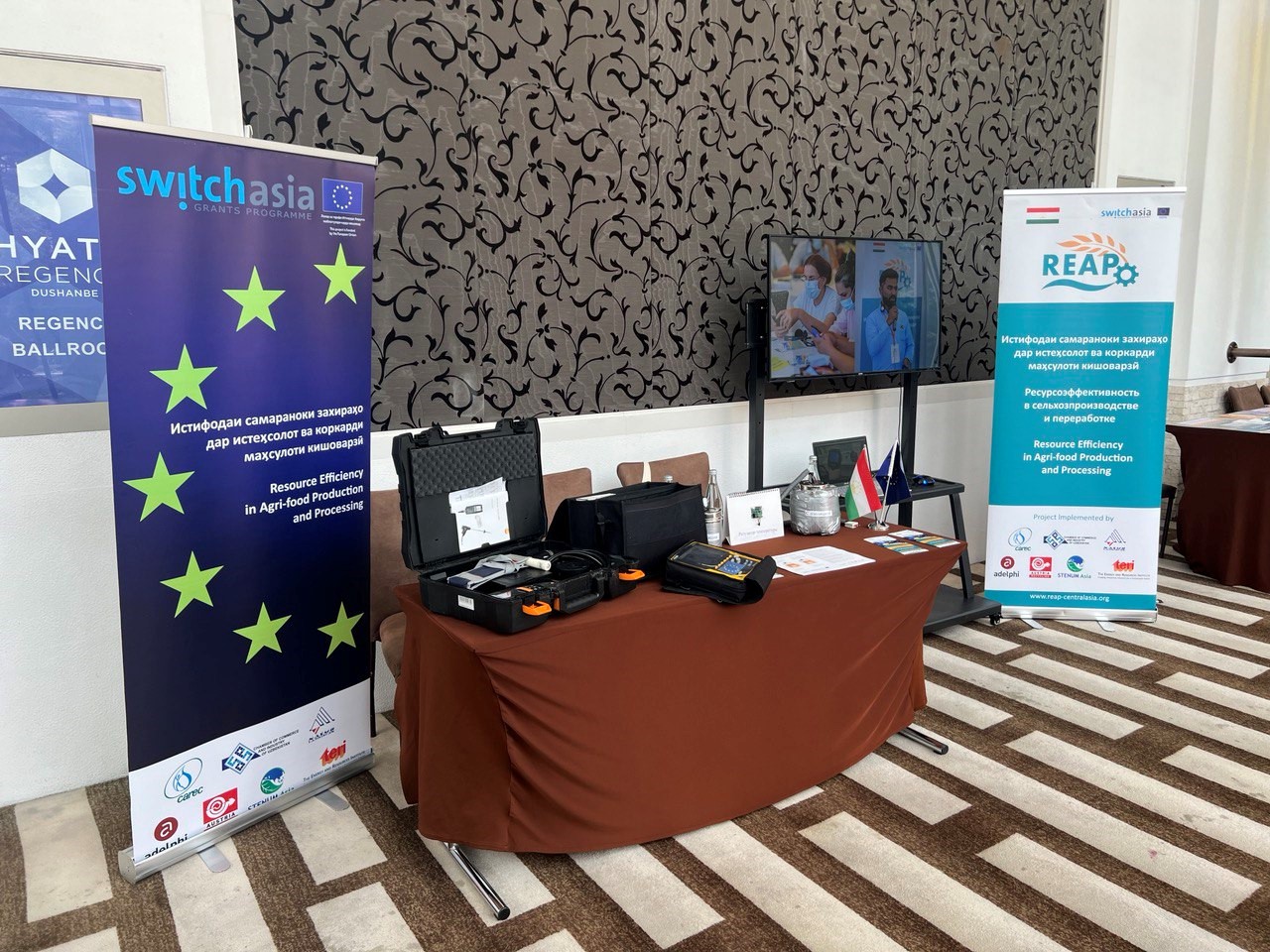The REAP (Resource Efficiency in Agricultural Production and Processing) project organised an exhibition of sustainable consumption and production (SCP) practices at the 5th Central Asian Conference on Climate Change (CACC-2023) in Dushanbe, Tajikistan on 16-17 May this year.
The exhibition provided an opportunity to showcase the achievements and impact of the REAP project, which aims to promote resource efficiency in the agri-food sector. Through innovative methods and technologies, the project aims to reduce resource consumption, minimise waste and increase sustainability.
Visitors to the conference were able to gain an insight into the implementation of SCP principles through a presentation of the REAP project. The exhibition showcased successful case studies highlighting the positive environmental and economic results achieved through the implementation of resource efficient practices in agri-food production and processing.
By talking about the REAP project as a SCP practice, the exhibition sought to inspire and encourage businesses and stakeholders to adopt similar approaches in their industries. It highlighted the importance of sustainable resource management and showcased practical solutions that contribute to a greener and more sustainable future.
The inclusion of the REAP project in the conference exhibition served as a valuable opportunity for knowledge exchange and networking, fostering cooperation between participants and demonstrating Central Asia's commitment to achieving sustainable development.
The exhibition received positive feedback and participants expressed interest in replicating and disseminating SCP practices demonstrated through the REAP project. The exhibition served as a platform for awareness raising, innovation and implementation of sustainable practices in the region.
The presence of the REAP project at the conference exhibition underlined its significant role in developing sustainable consumption and production practices, paving the way for a more resource-efficient and environmentally conscious future in Central Asia.
The REAP project is implemented by an international consortium (funded by the European Union), including the National Association of Small and Medium Enterprises of Tajikistan (NASMB), the Chamber of Commerce and Industry of Uzbekistan (CCIU), the German Consulting Bureau adelphi, the Association for the Promotion of Recycling and Environmental Protection in Austria (AREC), STENUM Asia Society for Sustainable Development (STENUM Asia), the Energy and Resources Institute (TERI). The consortium is led by the Regional Environmental Center of Central Asia (CAREC).

